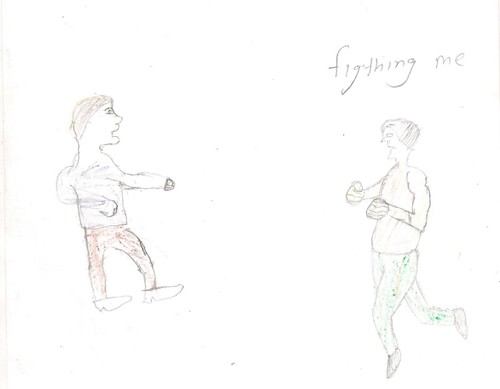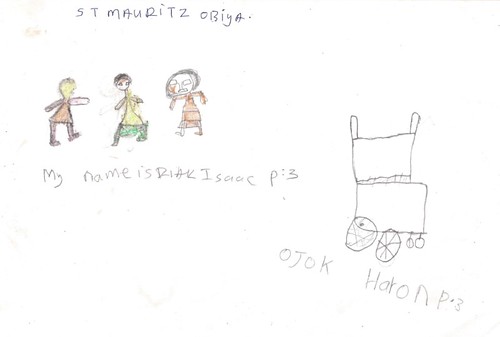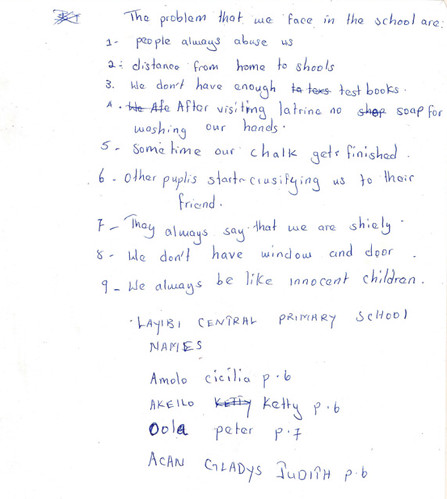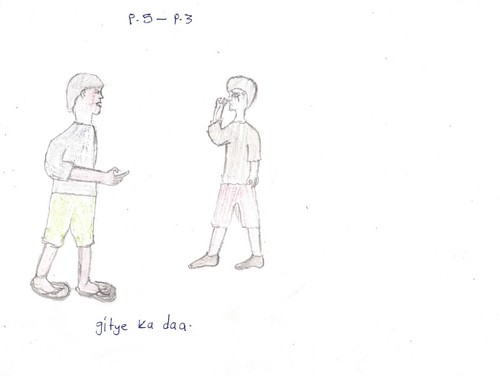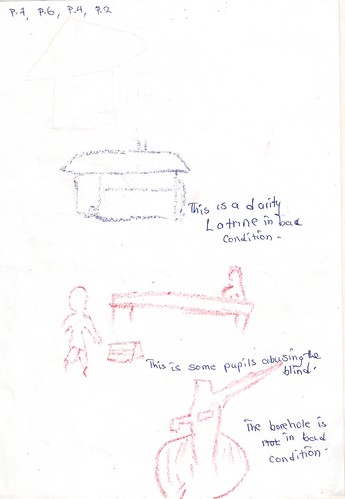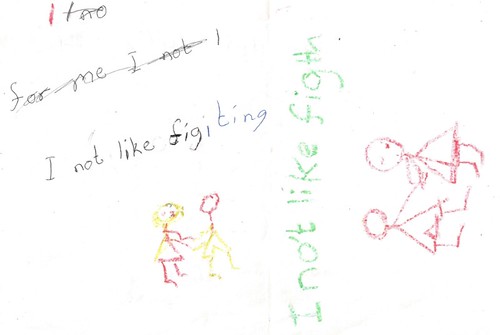“They tell you you’re ugly.” 13-year-old female
“Sometimes they abuse you and tell me that I should go away because I don’t see.” 12-year-old female with visual impairment
“People use abusive language. They say that my hand is just like my mother’s, but it’s not.” 16-year-old female with physical disability
“For me, I don’t like the isolation. It’s both teachers and children, it’s all around. ” 17-year-old male with visual impairment
“For you, you look like a dead person.” 16-year-old female with visual impairment
“Other students beat me in class.” 10-year-old male with intellectual disability
“They say hurry up disabled person the rain is coming.” 12-year-old male with physical disability
“Others they abuse. They say there is no space for you here, you should study from home. Others even play with my crutches.” 9-year-old male with physical disability
“He’s a mad person he should go to the hospital and get medication” 12-year-old male
“I will think about transferring.” 11-year-old female
“For me I would change attitude of people towards persons with disabilities and tell them to treat everyone equally.” 17-year-old male
During our water and sanitation needs assessment we conducted focus groups with over 150 children with disabilities in ten schools within Gulu District. While many of the focus group questions surrounded the state of water, sanitation, and hygiene we also left room for students to openly discuss challenges they faced at their school. While there were many students open to discussing bullying it was clear the problem was even larger when we asked students to draw or write their challenges. We has students pair up into groups, with those who cannot draw giving their idea to their partner. After water and sanitation structural problems, bullying was the second most drawn topic, with pictures depicting painful realities they faced from their peers at school.
This assessment was extremely important as we seek to build a schools program. Originally GDPU and AP planned to build accessible toilet and include a hygiene program, with a small element of bullying prevention. With this assessment we were able to find out that the majority of students are adequately accessing hygiene education at school in both the classroom and during assembly. From our focus groups with students however, it is clear that instead our educational program should focus on bullying prevention and sensitization of both teachers and student.
Posted By Kathryn Dutile (Uganda)
Posted Nov 3rd, 2014


